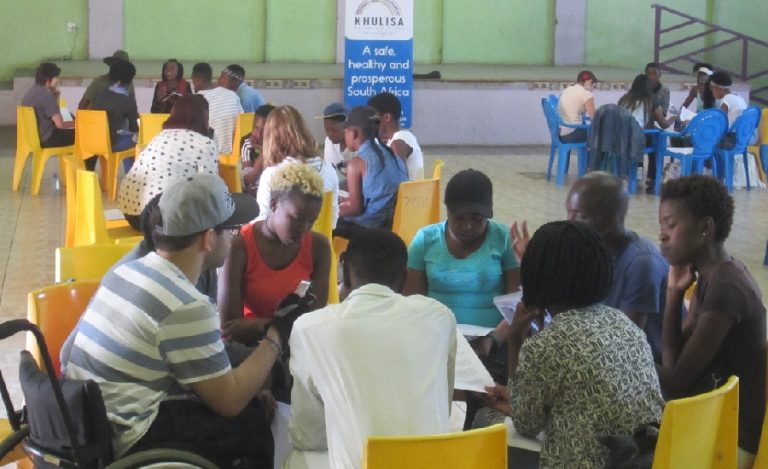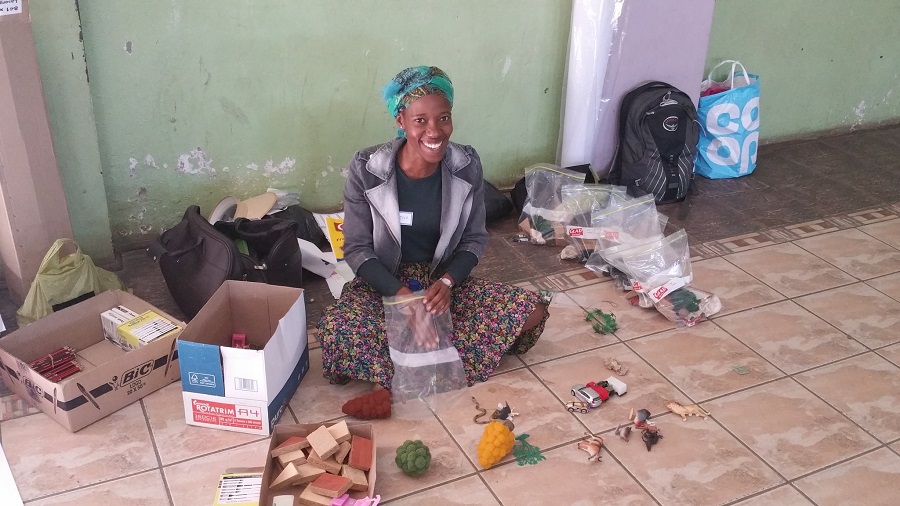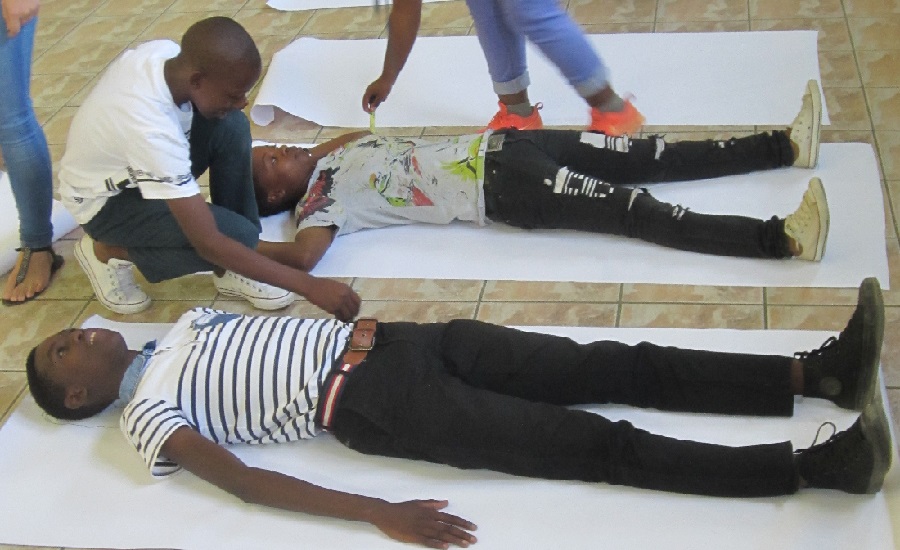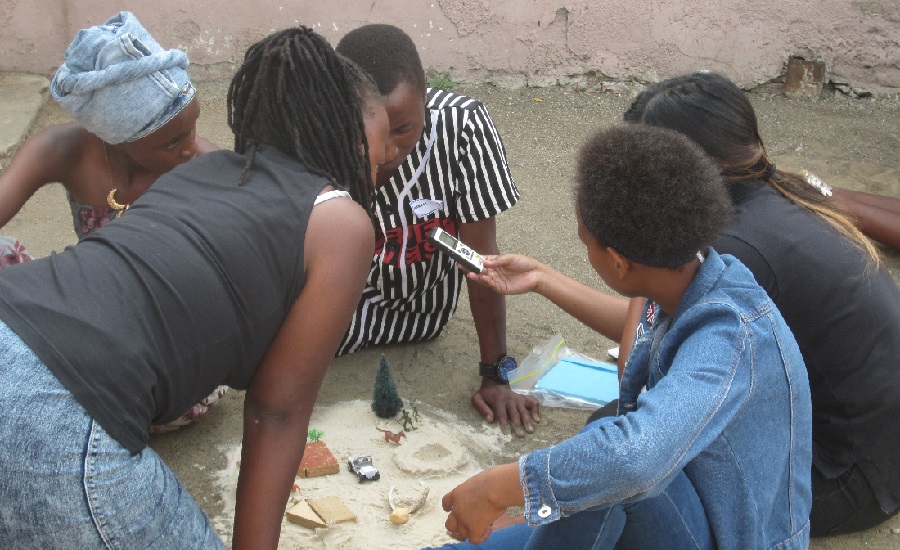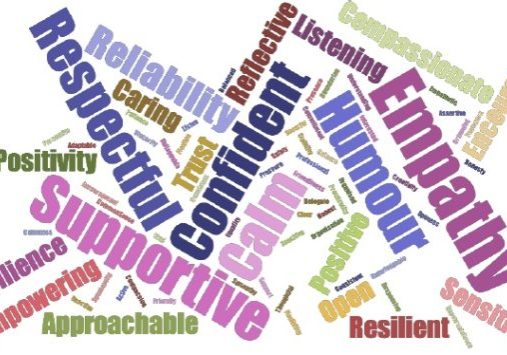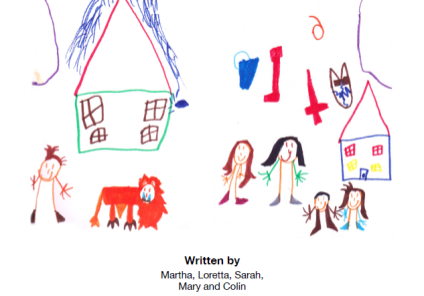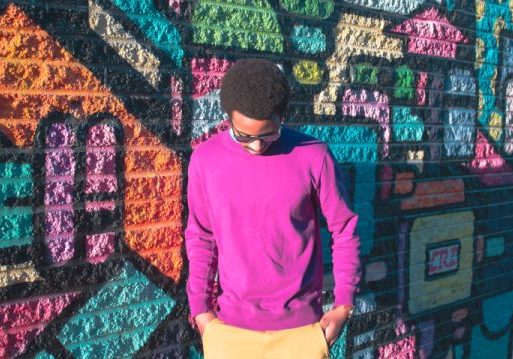Boingboing blogs from… South Africa
Patterns of resilience among young people in a community affected by drought: Historical and contextual perspectives: Co-researcher’s reflections for research activities, 4-5 April 2017
Following on from the training session discussed in an earlier blog, Master’s students and staff from the University of Pretoria and Boingboing co-researchers met with young people from Leandra, a small township in South Africa. Staff members from Khulisa Social Solutions also were present and had recruited the young people to the research project. Collectively we were supporting Leandran youth to undertake arts-based research to understand and combat drought in their community. This is part of our Patterns of Resilience to Drought project.
On the first day everybody was very excited and a little bit intimidated because we didn’t know what to expect. For many of us, this was our first foray into collaborative research and our first practical application of classroom learning and arts-based methodologies. There we all were, in a community hall: thinking and talking and looking at these pragmatic plans the young people make when there is a drought. The two days were filled with abundant learning opportunities as we set out to discover more about the research process by collecting data through creative and artistic mediums. It proved to be a fun and innovative way of learning more about drought and the community’s understanding of and resilience to it.
“I enjoy research in general. It is a great way to get to learn more about people and about different phenomenon. The best part of this research, for me is remembering that community research isn’t a clear cut, one-size-fits-all recipe. I have learned to appreciate all the members that contribute to an overall output and I have learned that regardless of anything that anyone knows, there is always a window to learn.” – Mosna Khaile
As the ice breaker unfolded and we moved on to the activities everything flowed and fell into place. We were so appreciative of how enthusiastic, helpful, co-operative, willing, friendly, and just basically lovely the Leandra co-researchers were to work with, sharing with us their extensive knowledge and insight into the struggles of drought. They openly volunteered information and no task was too much effort for them. The ‘today process’ allowed us to develop our research skills, and in teaching the co-researchers how to probe when they collect data in the field, we were able to refine and develop our own probing skills. For example, exploration of how young people and their communities deal with drought revealed that some of our research questions would need improving if we were to get to the important issues and gather the most knowledge. They taught us so much.
“The visual data collection was eye opening. I felt that the young people really enjoyed using visual methods of data collection. At first, it felt like they were struggling thinking about if really they had experienced drought. However, with probing, valuable information was gleaned with the different activities. I realised that, in my group, the ladies used social networking as a coping strategy. The co-researchers training really went well. The young people demonstrated enthusiasm and skill about being co-researchers.” – Netsai Gwata
Sarina Botha noted that the community’s unity in any given adversity stood out and was present in all the discussions, suggesting that this is an important source of resilience for them. As the activities progressed they grew more confident in their answers, and also started talking more about themselves, their families and their experiences and challenges with drought.
On the second day the young people arrived much more confident in themselves and were excited to transform from being participants to future researchers in their community. Several members commented on the sense of pride and empowerment amongst our groups, which was fantastic to see. The co-researchers’ training really went well and the visual data collection was eye opening. The young people enjoyed using visual methods of data collection, really taking ownership of the process, and their understanding of various art-based research methods made data collection much more enjoyable. Activities were crafted and managed in a way that all the young people enjoyed and the whole day was filled with laughter. Their confidence levels were re-enforced by the responsibility of being principal data generators, and trainers of participant co-researchers in the process of research and fieldwork. They demonstrated enthusiasm and skill about being co-researchers, grasping the idea of asking questions very well and probing for more answers, and it’s clear that they will bring back valuable data from their elders.
“The two days were a powerful learning experience as I watched the way in which using art combined with personal story-telling could be transformative in itself. One of our group members, a young adult female came to say that she had learned not to be shy. It was more than just words, as I saw the change in her myself. In the first activity, she voiced her wishes, but backed down and did not restate it in the face of dominance from one or two other more vocal members of the group. By the fourth activity of day one, she was a major contributor to the story building, both verbally and in manipulating figurines around the sand.” – Marianne Blunden
Sue Schoeman admitted to being quite sceptical of the whole approach and process at first. However, after seeing how the collaborative nature of this research informed and equipped participants to become fieldworkers and confident and able co-researchers, she has become an advocate of collaboration!
We were reminded again of how valuable a participatory research approach is, and how important it is that younger researchers lead the facilitation of this approach. The more, erm, ‘mature’ academics among us can utilise their experience to lead on getting the funding, support younger co-researchers to take the empirical lead, and be available for back-up, if/as needed. And as always, putting what was planned into action had its messy moments! But these moments made for rich learning too.
“I feel as if everyone I’ve met on this trip has taught me something but the people who taught me most were by far the young people from the township in Leandra. This feels like the bravest thing I’ve ever done, visiting universities scares me much more than visiting a township. I’ve felt overwhelmed by the whole experience, from the struggles with my own mental health to the inspiring individuals I’ve met along the way and the beauty of this land.” – Lisa Buttery
For the Master’s students it was an exciting and valuable first research experience, especially the collaboration process and observations of other co-researchers. The field work reiterated the need for flexibility and tested individual assumptions by bringing together many different views and experiences. Many of the team spoke about what a genuine privilege and honour it had been, that they were grateful to have had the opportunity and be welcomed into a marginalised community, whose expertise and voices might never have been heard, and to meet incredible, talented and knowledgeable young people who have lived through tough times.
“While the South Africa trip was about combating drought, for me new knowledge flooded in. After being inducted into a new team of over 50 skilled individuals, our potential to create a lasting impact amplified, like transforming a single drop of water into a storm. Becoming part of a new community can be nerve-wracking and stressful at times, but was extremely gratifying to be a part of. I leave South Africa a little teary eyed and eager to see what happens in June.” – Simon Duncan
Some of the most memorable moments included being astonished by different insights about the value of making plans with family and friends to reduce the use of water and optimise its use, and appreciating that shared ideas across ages, roles and urban-rural spaces all matter, to tackle ‘a little bit of water that needs to go a long way’.
“All of us crafting ideas together + drought issues = precious commodities” – Liesel Ebersöhn.
“The data collection process has been a wonderful learning experience. As the theory that I have been learning unfolded into reality throughout the past few days. Where assumptions were confirmed and others dismissed. As aspects such as resilience were not just a concept to comprehend but a process that was expressed and seen in the narratives shared. I also was delighted to have a glimpse into the world-view held by the participants during the formal sessions and very much so the informal sessions. Lastly, it shed light on my prior understanding of myself as a researcher, and my current stance.” – Thabang Nakana
Watch this blog space to learn about what happened next…..
A co-produced blog based on the reflections of the University of Pretoria and Boingboing researchers, including Razeena Badat, Marianne Blunden, Sarina Botha, Lisa Buttery, Scott Dennis, Simon Duncan, Liesel Ebersöhn, Nita Greyling, Netsai Gwata, Kayleigh Hammond, Megan Hanekom, Angie Hart, Claire Hopkins, Elmarie Jonker, Mosna Khaile, Motlalepule Mampane, Thabang Nakana, Kiara Pillay, Anel Schoeman, Sue Schoeman, Linda Theron, and Gwyneth Vollebreght.
